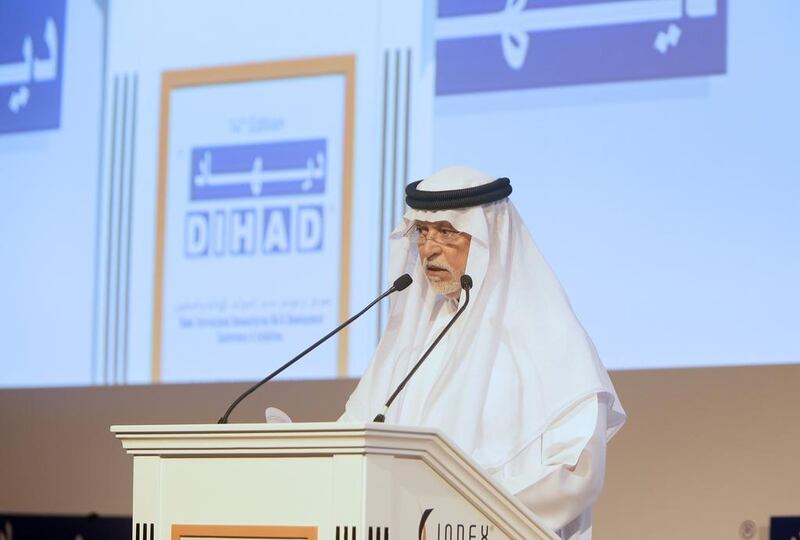DUBAI // A call to intensify humanitarian projects to alleviate the suffering of the 15 million children in conflict zones was made by Sheikh Mohammed bin Rashid’s humanitarian adviser on Tuesday.
With women and children 14 times more likely to lose their lives in a crisis than men, Ibrahim Bumelha said the UAE was keen to provide a quick response to international crises and conflicts throughout the world and provide ongoing assistance to help refugees and those displaced.
“Conflict makes children the most vulnerable and they are those who suffer the most,” said Mr Bumelha at the opening of the Dubai International Humanitarian Aid and Development Conference (Dihad).
“President Sheikh Khalifa said the more we give, the more we get and the more stability and wellbeing we have. These are words we should ponder on, they encourage us to work more to spread good globally, especially for women and children.”
Helle Thorning-Schmidt, chief executive of Save The Children International and a former Danish prime minister, said there was nothing more urgent than protecting children in armed conflict.
“Our job is far from done,” she said. “The Geneva Declaration on the Rights of the Child states that mankind owes to the child the best it has to offer, but right now across the world 15 million children are still living with violent conflicts. That’s 15 million children potentially suffering grave breaches of this declaration – they are killed, made victims of sexual violence, abducted or attacked in schools and hospitals, denied life-saving humanitarian access, recruited by armed groups and forced into conflicts.”
She said these children were experiencing the worst humanity had to offer. “Many of them don’t pass their fifth birthday,” she said. “During a crisis, we know women and children are 14 times more likely to lose their lives than men are and, right now across Sudan, Yemen, Nigeria and Somalia, estimates say 1.4 million children may die this year. We owe it to the children in all kinds of conflicts to do everything we can to end their suffering.”
Sheikh Khalifa announced earlier this year that this would be the Year of Giving.
The UAE ranks among the top countries in the world in providing assistance and it is considered a main hub for humanitarian relief and activities, hosting its own Humanitarian City.
“The people of the UAE are the sons of the late Sheikh Zayed and it is always a precursor to providing assistance locally and globally without taking into account religion or complexities, only the duty it should fulfil,” Mr Bumelha said.
“The conference gathers humanitarian agencies and organisations to exchange ideas and views and discuss challenges facing societies in crisis. The aim is to be able to improve the international community’s response to face up to these crises, which cause the suffering of many, so I hope this will lead to conclusions and recommendations that will benefit the donors and recipients of aid.”
The conference, in its 14th year, is seen as a vital platform to address the future of humanitarian aid.
“Dihad will look into substantial matters related to building the capacity of children to regain their rights to life, food, safety and dignity,” said Dr Mohammed Al Falahi, secretary general of the Emirates Red Crescent. “The UAE is aware of its obligations and it has consequently supported and taken some initiatives that help children who are victims of crises in Yemen, Syria and Iraq as well as in the Horn of Africa, where we see hunger, malnutrition and other challenges. Hundreds of thousands of children have lost their lives because of hunger.”
Dr Al Falahi said the Red Crescent played a significant role in bridging the gap to provide children with healthcare services and education.
“Those are children who had to drop out of school and become refugees,” he said. “We hope we will be able to have clear plans and programmes to save the childhood and children of all these challenges.”
cmalek@thenational.ae






